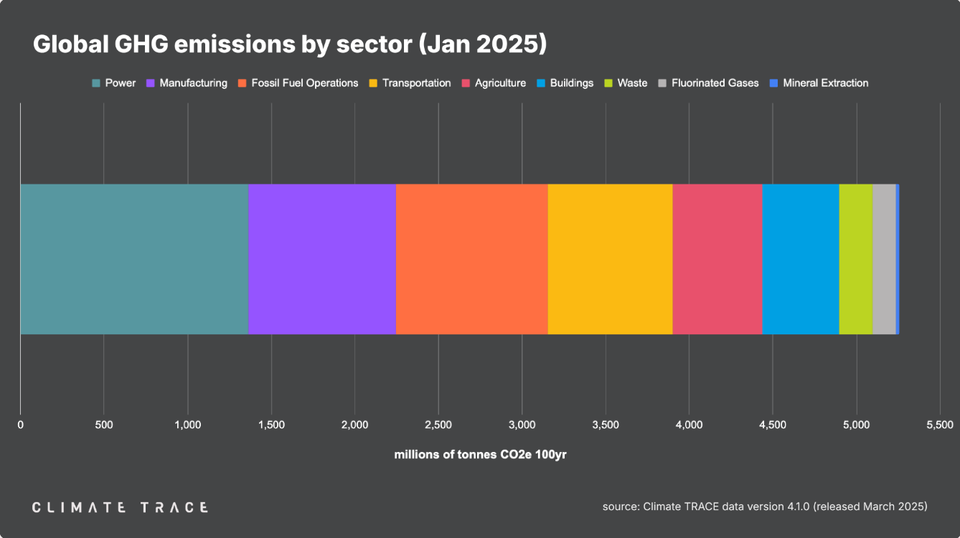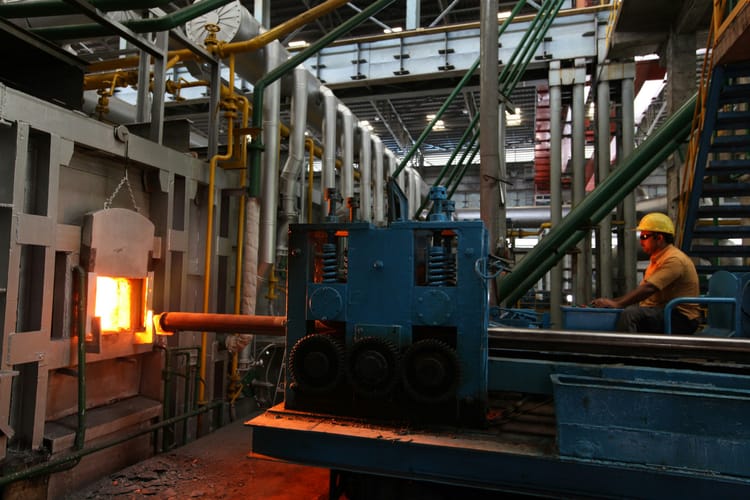Sustainability leaders hail Climate TRACE real-time emissions data platform

Al Gore’s Climate TRACE platform started providing monthly, satellite and AI-powered global emissions data last month – and global sustainability leaders see it as a game changer.
At the end of March, Climate TRACE – a not-for-profit coalition of over 100 universities, scientists, and AI experts – published its first monthly report, breaking down emissions data from January 2025. The platform gathers data collected by satellites and other remote sensing technologies to show actual emissions and where they came from – from countries to industries.
“Climate data just entered the real-time era. For the first time in history, we now have monthly, independently verified data showing exactly who is polluting, how much, and where,” said Ingmar Rentzhog, CEO and Founder of climate action platform We Don’t Have Time in a post that was widely shared today on Linkedin.
Before ClimateTRACE, emissions data mostly came from the International Energy Agency (IEA), which publishes an annual report based on countries’ self-reported information. Now, everyone has access to a near real-time database of global emissions, making this “the Bloomberg Terminal equivalent of climate data”, according to Carla Schlemminger, Head of Market Development at impact investment advisor Investature.
A game changer for climate negotiations
This is likely to feed climate policymaking and change the way global climate negotiations are conducted. “The significance cannot be overstated. Traditional emissions reporting often suffers from delays and inaccuracies, hindering timely policy responses. Climate TRACE addresses this by providing near real-time data, enabling policymakers, businesses, and the public to make informed decisions swiftly – and shedding light where some may want to hush up wrongdoings,” commented Tilmann Vahle, Director, Sustainable Automotive and Batteries at German company SYSTEMIQ.
For those disillusioned by years of disappointing COPs, the platform is also a new source hope.“I attended my first COP in 2011. Over the years I have often voiced my frustration over the lack of accountability around COPs, climate diplomacy, net zero pledges and overall progress on climate goals. This new tool allows us to check if countries are indeed doing what they promise, and if net zero pledges are having the impact they claim,” said Anna Lerner Nesbitt, CEO at Climate Collective.
“It reduces the need for big conferences focused on self-reported progress and offers a major incentive for the corporates who are leading the way on decarbonising to get their much deserved credit,” she added.
A ‘nail in the coffin of greenwashing’
Calling the Climate TRACE initiative ‘another nail in the coffin of greenwashing’, she also predicted that the platform would serve as a major tool for climate advocacy and litigation.
This is perhaps what sustainability leaders are most excited about: by providing real-time third-party data on country and sector emissions, Climate TRACE could help root out greenwashing from the world of climate action.
“This level of transparency is a game-changer: It holds emitters accountable, exposes discrepancies between reported and actual emissions, empowers humanity to track progress towards climate goals and democratises data, allowing civil society and investors to scrutinise environmental performance without relying on self-reported figures,” added Vahle.
“While some leaders sow confusion and delay, initiatives like Climate TRACE exemplify how technology can drive accountability and accelerate the transition to a zero-carbon economy. It’s a testament to the power of data in illuminating the path forward, ensuring that progress isn’t just possible — it’s measurable.”







Member discussion